
“History matters , narrative matters even more...”


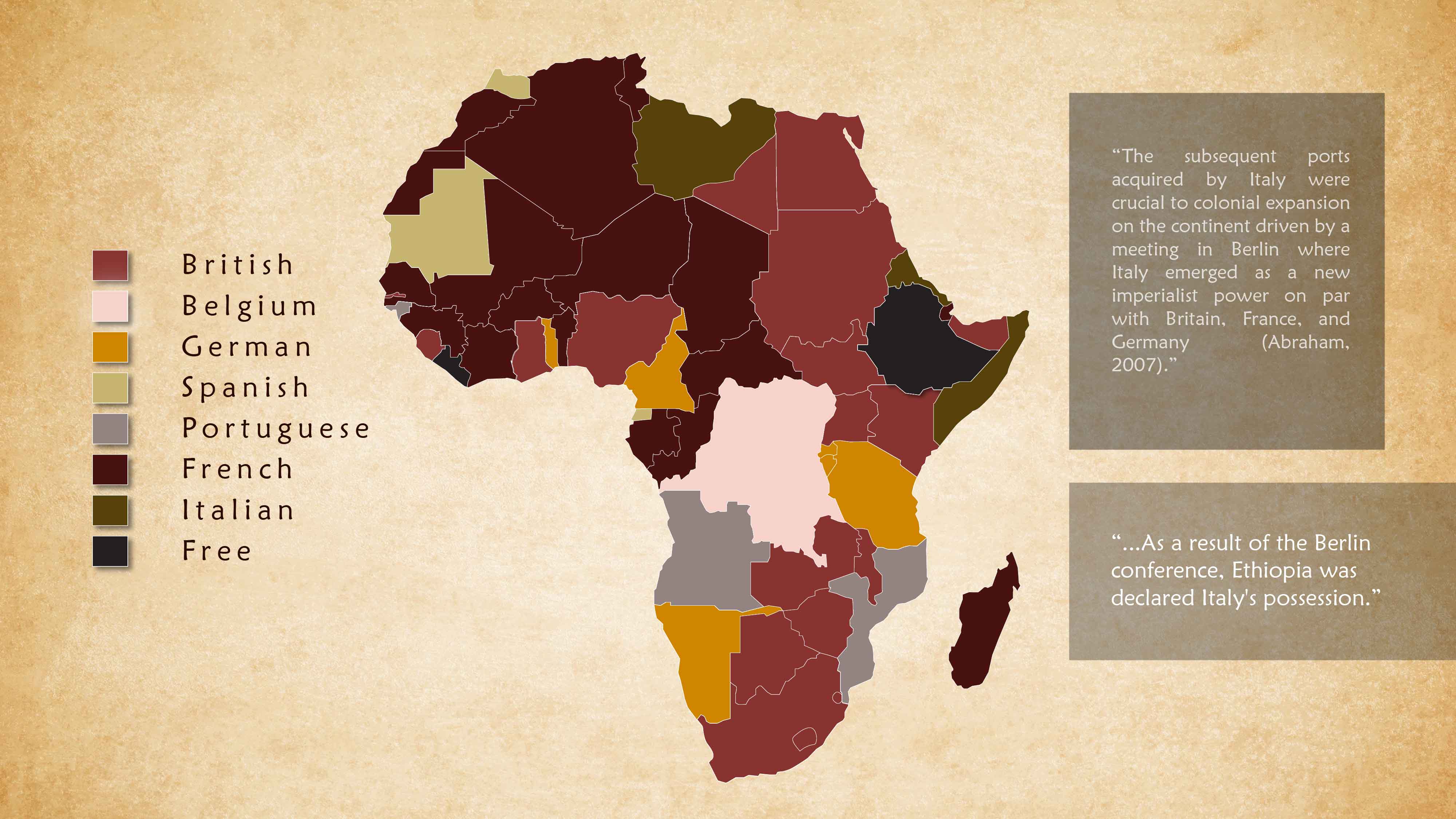
1869 marked the opening of the Suez Canal, and beginning of competition between Egypt, France, and Italy. The Suez Canal opened up the scramble for coastal ports along eastern Africa. Italian acquisition of ports of Assab dramatically changed the nature of European presence in the Red Sea and elevated this body of water from a backwater to an important...

.jpg?tr=ar-16-9,w-1100,fo-auto)
In short, Emperor Menelik II’s reunification of Ethiopia at the end of the 19th century increased the population formerly decimated by famine and disease (Pankhurst, 1968). In this respect, formidable troops mobilized and since the Carthaginian leader Hannibal, the battle of Adwa represented the largest military engagement between Africans and Europeans. In this case, the European foe was Italy. Italian colonial interest in Ethiopia...



Is a treaty signed in the small Ethiopian town of Wuchale in northern Ethiopia located about 40 km north of Dessie in the Southern Wollo Zone of the Amhara Region, from which the treaty got its name. The treaty signed between the Ethiopian Empire and the Kingdom of Italy....


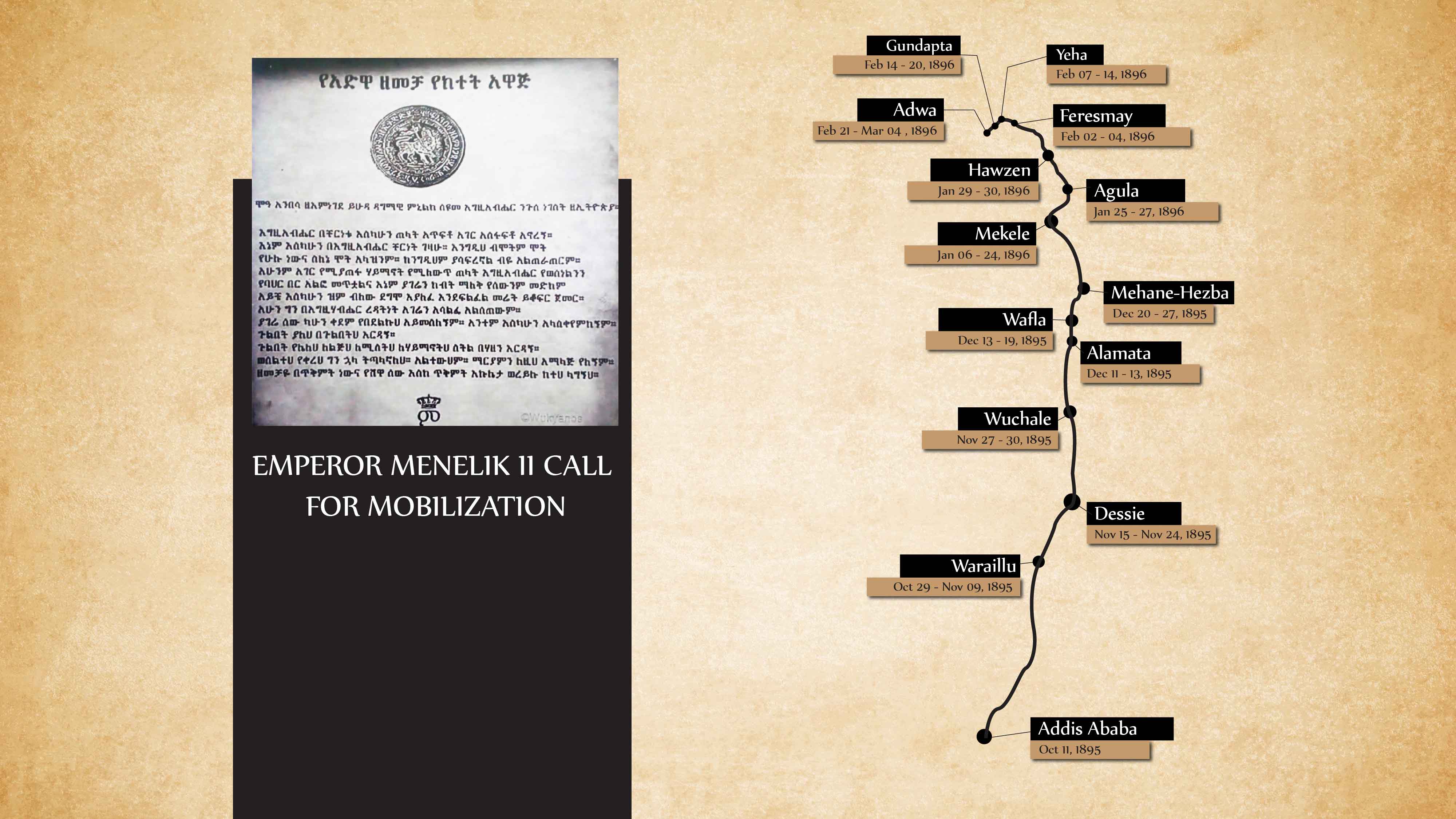
Most of this force walked to Adwa bare-footed and without adequate clothing to shelter them from the sun or cold nights. In addition to being armed, troops were sustained by the provisions supplied and prepared by women. These provisions included honey, tanikas of butter,...

.jpg?tr=ar-16-9,w-1100,fo-auto)
Before final decisive Battle of Adwa, Italian and the Ethiopian troops fought the Battle of Amba Alage on 7 December 1895 in southern Tigray. Fighting lasted only six hours but Ethiopia prevailed (Greenfield, 1965). When Emperor Menelik II army arrived at Lake Ashenge to celebrate Amba Alage's victory, it assured some local chiefs of the army’s prowess before committing troops to the Ethiopian cause...

.jpg?tr=ar-16-9,w-1100,fo-auto)
Before final decisive Battle of Adwa, Italian and the Ethiopian troops fought the Battle of Amba Alage on 7 December 1895 in southern Tigray. Fighting lasted only six hours but Ethiopia prevailed (Greenfield, 1965). When Emperor Menelik II army arrived at Lake Ashenge to celebrate Amba Alage's victory, it assured some local chiefs of the army’s prowess before committing troops to the Ethiopian cause...


Before final decisive Battle of Adwa, Italian and the Ethiopian troops fought the Battle of Amba Alage on 7 December 1895 in southern Tigray. Fighting lasted only six hours but Ethiopia prevailed (Greenfield, 1965). When Emperor Menelik II army arrived at Lake Ashenge to celebrate Amba Alage's victory, it assured some local chiefs of the army’s prowess before committing troops to the Ethiopian cause...



By late February 1896, the Italian army was entrenched around Mount Enticho in Tigray, two months after mobilization proclamation and one month after the march from Addis Ababa. The Ethiopian army consist of the combined troops of different regional lords encircled the ...


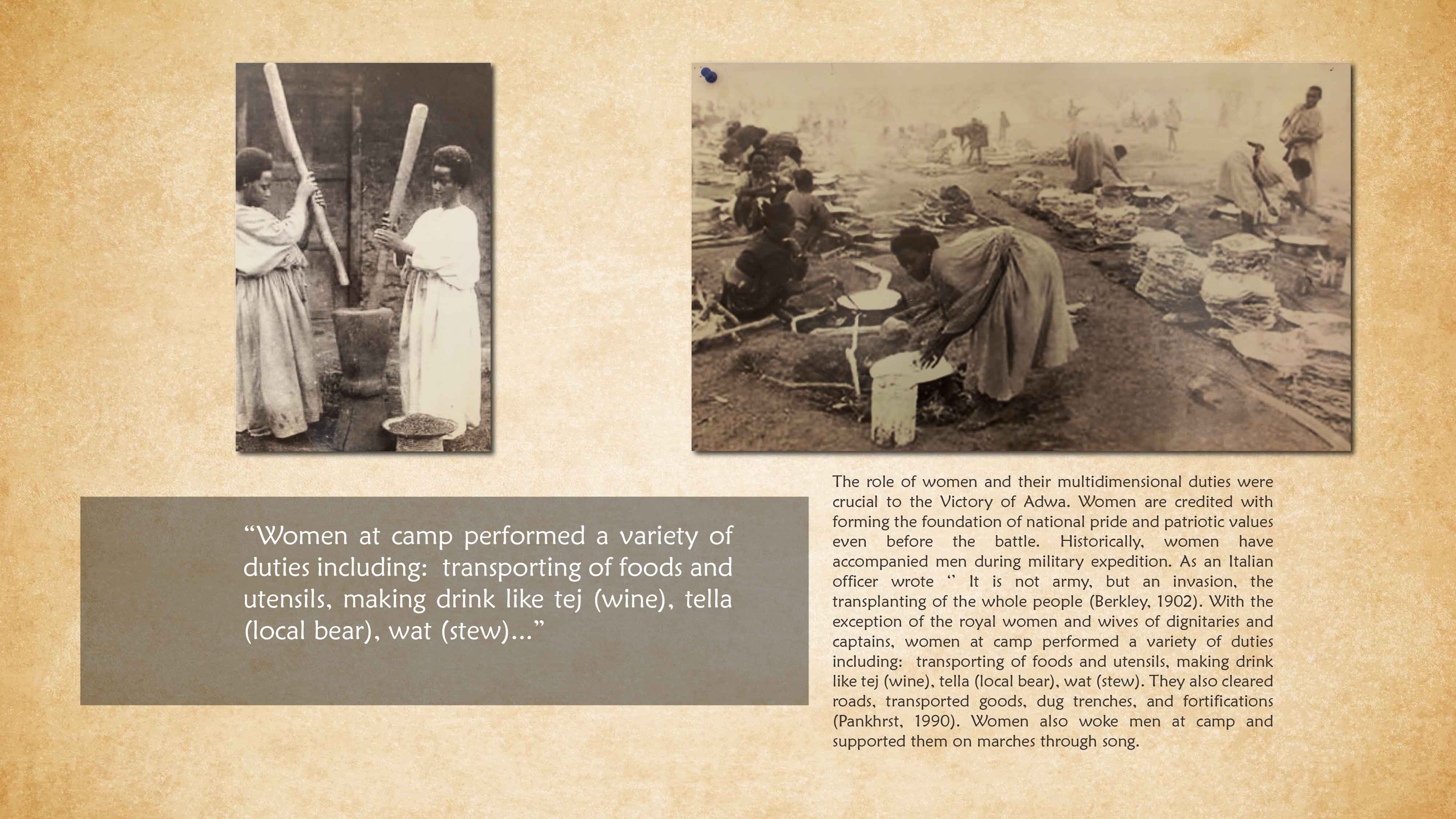


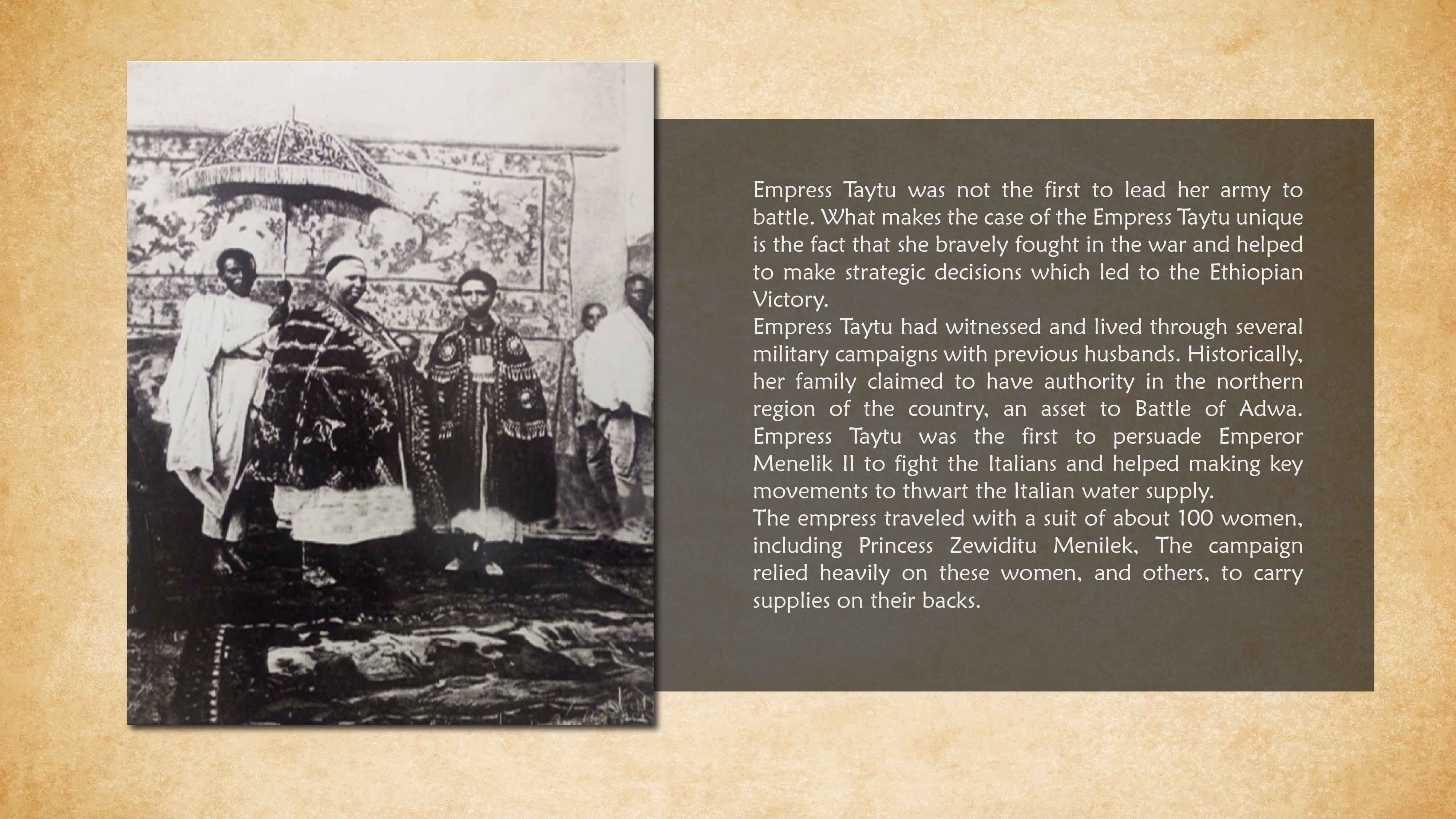




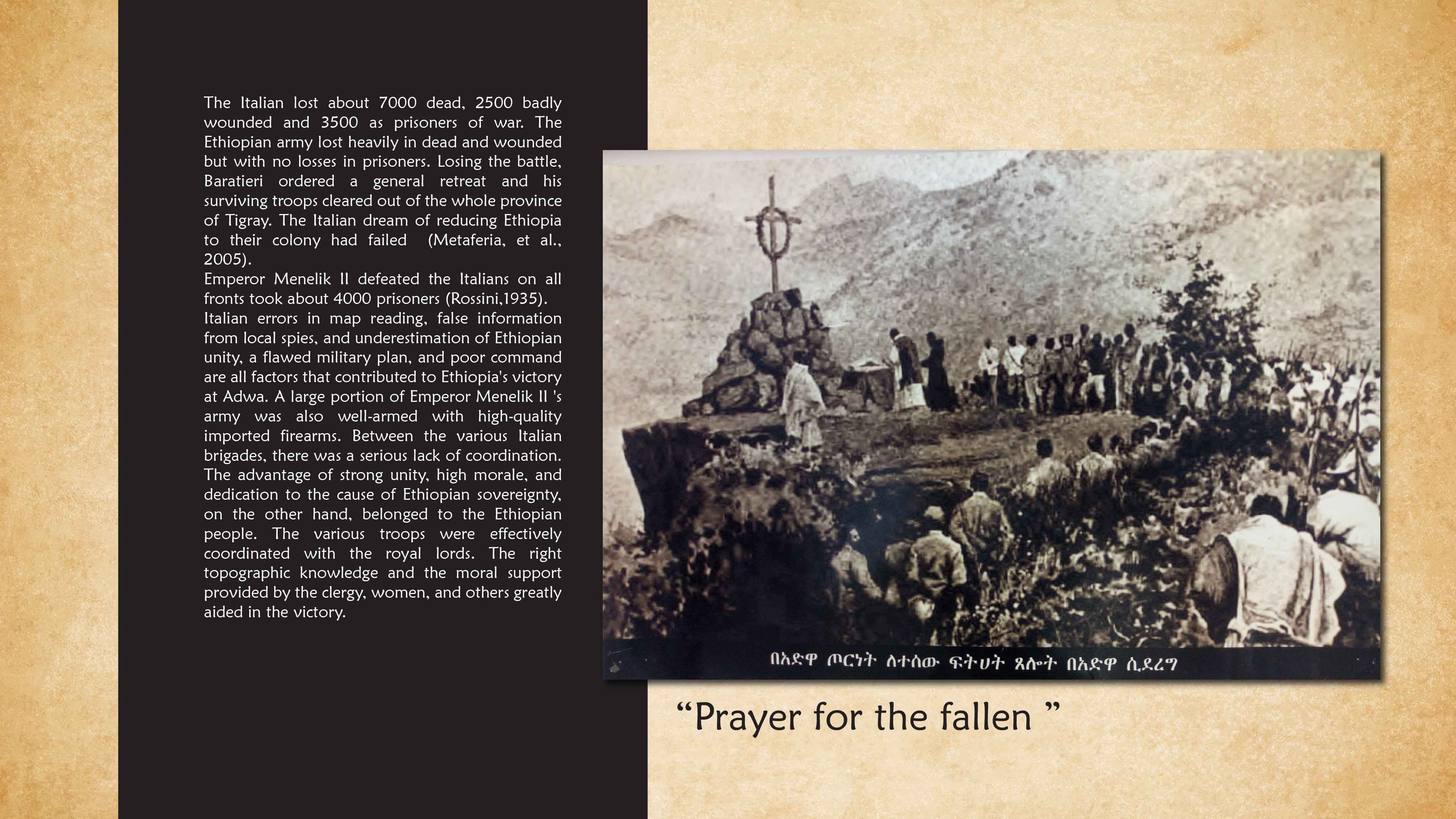


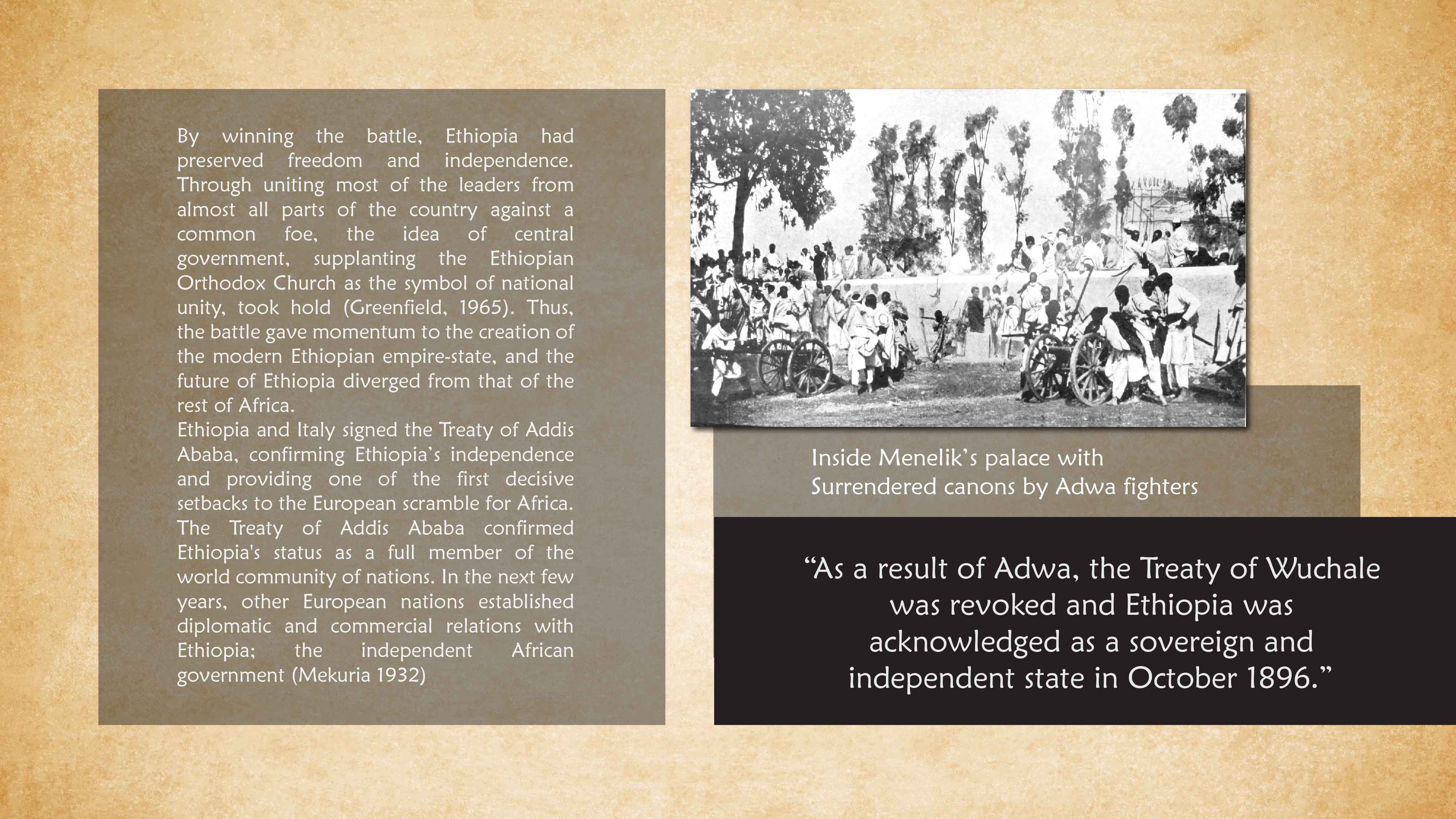


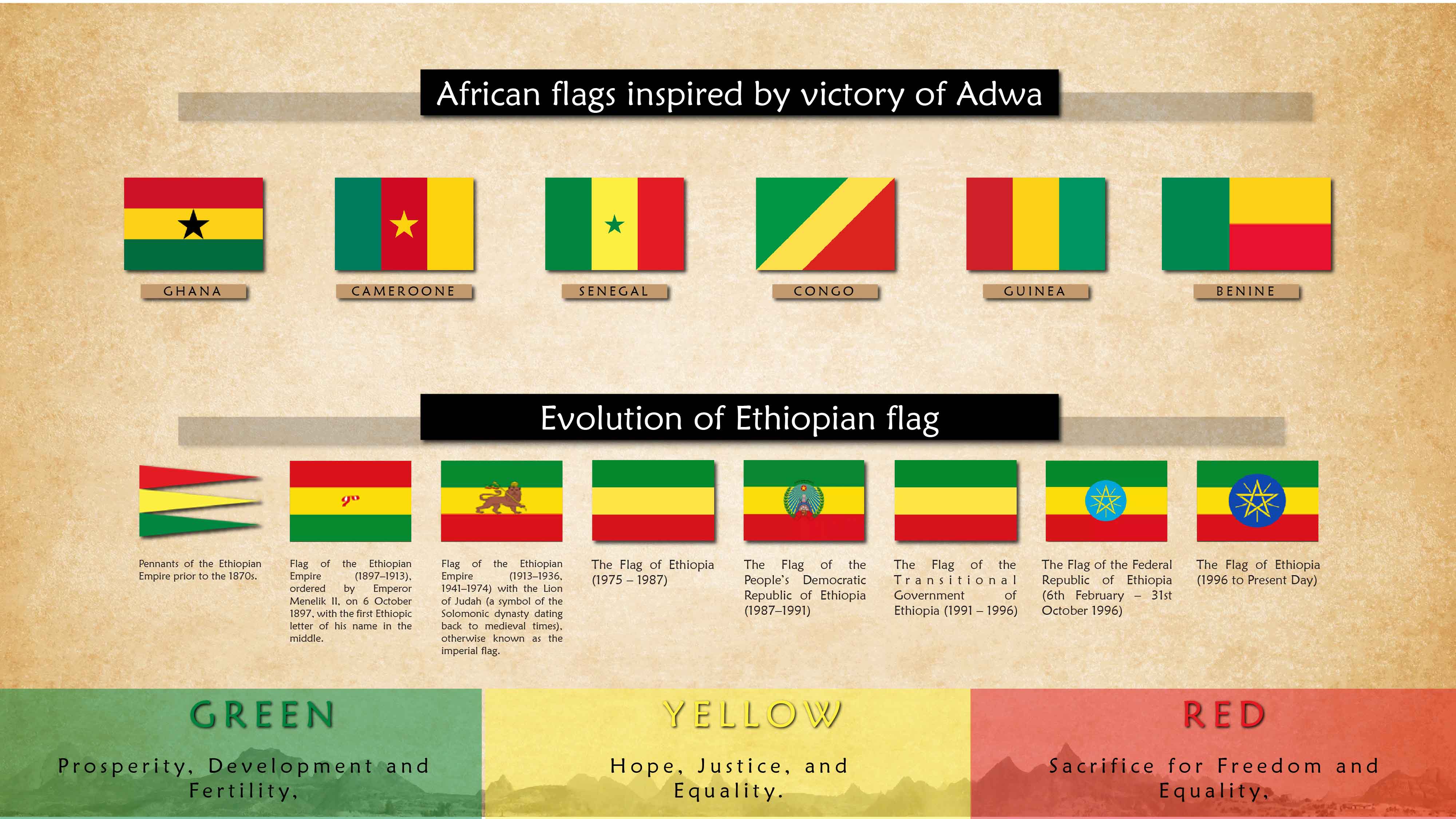
The Adwa Battle not only brought about physical changes, but also psychological benefits. Ethiopians enjoyed a sense of independence, superiority, and pride in their country that other Africans mired in colonialism had lost. The post-Adwa spirit of Ethiopia, passed down through the...












